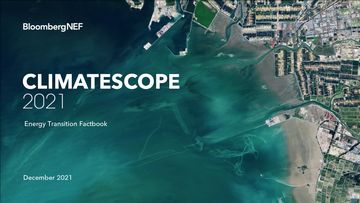Paraguay
With a cumulative score of 1.02, Paraguay ranks number 89 among emerging markets and number 118 in the global ranking.
- Emerging markets
- Americas
0.85 / 5
Power score
1.42 / 5
Transport score
Buildings score
Only 56 markets (28 emerging markets) are scored on the Buildings sector. See the full list on the methodology page.
Low-carbon strategy
Net-zero goal and strategy
Paraguay has not submitted a long term strategy nor a net zero goal.
Nationally Determined Contributions (NDC)
Paraguay submitted Nationally Determined Contribution (NDC) – its plan to help achieve the goals of the Paris Agreement - on July 2021. The NDC offers no explicit increase of Paraguay’s 2015 goal to reduce projected emissions by 20% by 2030, compared to a BAU (business as usual) scenario. Half of this goal is conditioned on international support, while the other half is unconditional, based on the country’s existing resources. Sectors included are energy, industry, agriculture, waste and LULUCF.
Fossil fuel phase-out policy
Since power generation in Paraguay comes mainly from hydropower, there is no need for a fossil fuel phase-out policy.
Power
Power policy
With almost all of its electricity demand met by three large hydro plants totaling 8.8GW of capacity, Paraguay has had little incentive to develop a policy framework for other energy sources. In fact, the country exports more electricity than it consumes. The only clean energy policy incentive in Paraguay is a biofuel blending mandate for gasoline and diesel. Paraguayan authorities are planning to have its biofuel plan operational in 2024.
Power policies
Power prices and costs
In 2020, Paraguay’s average electricity prices kept almost flat when compared to 2019 prices. Residential prices were $60.67/MWh, while industrial prices were $44.22 and commercial prices $53.99. Paraguay’s electricity prices are the cheapest in Latin America. Paraguay subsidizes electricity tariffs for lower-income families.
Power market
Paraguay’s electricity market is overseen by the Department of Mines and Energy, which is under the Ministry of Public Works and Communications (Ministerio de Obras Públicas y Comunicaciones) and controlled by state-owned vertically integrated utility Administración Nacional de Electricidad (ANDE). In theory there is no rule that prohibits corporate Power Purchase Agreements, but the power market structure makes it difficult for C&I custormers to sign bilateral contracts. Because large hydro more than meets its needs, the country has not received significant clean energy investment in recent years. In 2011 Paraguay received $28 million for biofuels investments. It is anticipated that in 2024, when the Omega Green biofuels plant will receive $800 million in investment.
Utility privatisation
Which segments of the power sector are open to private participation?
Wholesale power market
Does the country have a wholesale power market?
Doing business and barriers
Paraguay’s electrification rate in 2019 was 99%, and it claimed to reach 100% the following year. The country’s peak demand jumped 88% over the past 10 years, from 1,892MW in 2010 to 3,563MW in 2020.
From Paraguay’s total generated energy, the surplus (more than half) is exported to Brazil and Argentina. The Paraguayan power market does not have private layers. The average level of import duties for components to build a solar or wind project is 14%. The average level of value added tax (VAT) for components needed to build a solar or wind project is 10%.
Currency of PPAs
Are PPAs signed in or indexed to U.S. Dollars or Euro?
Bilateral power contracts
Can a C&I (Commercial and Industrial) customer sign a long-term contract (PPA) for clean energy?
Bilateral power contracts
Can a C&I (Commercial and Industrial) customer sign a long-term contract (PPA) for clean energy?
Bilateral power contracts
Can a C&I (Commercial and Industrial) customer sign a long-term contract (PPA) for clean energy?
Fossil fuel subsidies
Does the government influence the wholesale price of fossil fuel (used by thermal power plants) down through subsidies?
Fossil fuel taxes
Does the government influence the wholesale price of fossil fuel (used by thermal power plants) up through taxes?
Transport
EV market
Paraguay has a nascent EV market, with less than a hundred electric vehicles sales in 2019. VAT reductions legislation for EV purchases was enacted in 2016. Cleaner fossil fuels are being introduced in the country, with a low sulfur diesel rule requiring a maximum of 50ppm or below.
EV policy
Itaipu Technological Park, through the Center for Innovation in Energy Technologies, undertook an initiative that foresees the installation of charging systems for electric vehicles whose electricity will be generated with solar energy from photovoltaic installations built on site.
Transport policies
Fuel economy standards
Does the country have a fuel economy standard in place?
Buildings
Buildings market
The government has yet to implement any substantive policy support in this sector and the low-carbon heat market remains at an early stage.
Energy performance standards
Are there minimum energy performance standards for buildings?
Energy efficiency plan
Does the country have a national energy efficiency plan?
Buildings policy
The government has yet to implement any substantive policy support in this sector and the low-carbon heating and cooling market remains at an early stage.

